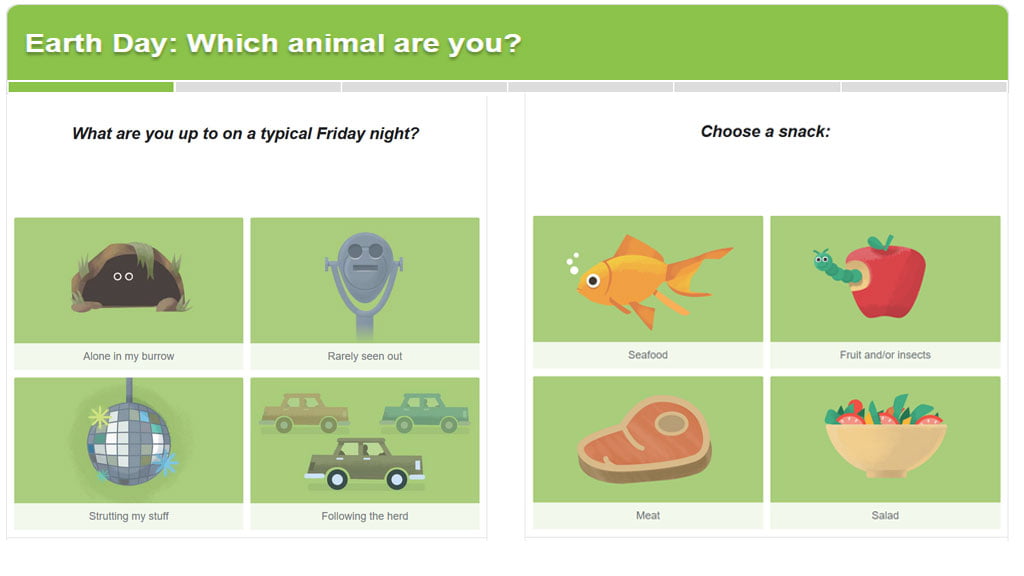Finance trivia questions and answers are a fun way to test your knowledge about money, economics, banking, and investing. From historical financial events to modern-day market trends, these trivia questions challenge your understanding of the financial world.
Introduction
Finance is an essential part of our daily lives, yet many people find it complex and intimidating. One engaging way to learn about finance is through trivia questions. Whether you’re a finance student, a professional, or just someone who loves quizzes, finance trivia can be both educational and entertaining.
In this article, we’ll explore a wide range of finance trivia questions and answers, covering topics like banking, stock markets, famous economists, and global financial systems. By the end, you’ll have a deeper understanding of financial concepts while enjoying a fun quiz experience.
Why Finance Trivia Matters
Finance trivia isn’t just for fun—it helps improve financial literacy. Many people struggle with basic money concepts, and trivia makes learning interactive. Here’s why finance trivia is valuable:
- Enhances Knowledge: Helps people understand economic principles in a simple way.
- Improves Decision-Making: Knowing financial history and trends can lead to smarter money choices.
- Engages Learning: Makes complex topics more digestible through quizzes.
Finance Trivia Questions and Answers
Here’s a finance trivia question and answer list, organized by category with 10 Q&A per category and formatted with a line gap after each:
Personal Finance
Q: What is the term for money set aside for unexpected expenses?
A: Emergency fund
Q: What does APR stand for in finance?
A: Annual Percentage Rate
Q: What is a credit score used for?
A: To evaluate a person’s creditworthiness
Q: What’s the usual recommended percentage of income to save monthly?
A: 20%
Q: What does the term “net worth” mean?
A: The value of all assets minus liabilities
Q: What is the 50/30/20 budget rule?
A: 50% needs, 30% wants, 20% savings
Q: What is a common retirement savings account in the U.S.?
A: 401(k)
Q: What’s a FICO score range?
A: 300 to 850
Q: What is compound interest?
A: Interest calculated on the initial principal and also on the accumulated interest
Q: What type of insurance covers damage to your car in an accident?
A: Collision insurance
Banking
Q: What is the primary role of a bank?
A: To accept deposits and lend money
Q: What is a checking account used for?
A: Everyday spending and withdrawals
Q: What is an overdraft?
A: Spending more money than is in your account
Q: What’s the term for an account that earns interest over time?
A: Savings account
Q: What does FDIC stand for?
A: Federal Deposit Insurance Corporation
Q: What is the limit of FDIC insurance per account per bank?
A: $250,000
Q: What is a bank statement?
A: A summary of account transactions over a period
Q: What is mobile banking?
A: Accessing banking services via a smartphone app
Q: What is a bank’s routing number used for?
A: Identifying the financial institution in a transaction
Q: What’s a cashier’s check?
A: A check guaranteed by a bank, drawn from its own funds
Investing
Q: What does ROI stand for?
A: Return on Investment
Q: What is a stock?
A: Ownership in a company
Q: What is a dividend?
A: A portion of a company’s earnings paid to shareholders
Q: What does the S&P 500 track?
A: The stock performance of 500 large companies in the U.S.
Q: What is a mutual fund?
A: A pool of money from many investors to buy a diversified portfolio
Q: What’s a bond?
A: A loan made to a borrower (typically a company or government)
Q: What is diversification in investing?
A: Spreading investments to reduce risk
Q: What is a bear market?
A: A market that is declining in value
Q: What is a bull market?
A: A market that is rising in value
Q: What is the NASDAQ?
A: An American stock exchange
Economics
Q: What is inflation?
A: A general increase in prices over time
Q: What is GDP?
A: Gross Domestic Product
Q: What is a recession?
A: A period of economic decline
Q: What is supply and demand?
A: Economic model of price determination
Q: What is monetary policy?
A: The process by which a central bank controls money supply
Q: What does the Federal Reserve do?
A: Regulates U.S. monetary policy and interest rates
Q: What is fiscal policy?
A: Government adjustments to spending and tax rates
Q: What’s a trade deficit?
A: When imports exceed exports
Q: What is stagflation?
A: High inflation and unemployment with stagnant demand
Q: What does CPI stand for?
A: Consumer Price Index
Business Finance
Q: What is a balance sheet?
A: A statement showing a company’s financial position
Q: What is an income statement?
A: A report showing profit or loss over time
Q: What are assets?
A: Resources owned by a company
Q: What are liabilities?
A: Debts or obligations owed by a company
Q: What is equity?
A: The value remaining after liabilities are subtracted from assets
Q: What is cash flow?
A: The movement of money in and out of a business
Q: What is working capital?
A: Current assets minus current liabilities
Q: What is break-even point?
A: When total revenue equals total costs
Q: What is a fiscal year?
A: A 12-month period used for financial reporting
Q: What does EBITDA stand for?
A: Earnings Before Interest, Taxes, Depreciation, and Amortization
Taxes
Q: What is income tax?
A: A tax on a person’s earnings
Q: What is a W-2 form?
A: A tax form showing annual wages and tax withheld
Q: What is a tax deduction?
A: An expense that reduces taxable income
Q: What is a tax credit?
A: A direct reduction of tax owed
Q: What is the IRS?
A: Internal Revenue Service
Q: What is capital gains tax?
A: A tax on profit from asset sales
Q: What is a 1099 form?
A: A tax form for non-employee income
Q: What is tax evasion?
A: Illegally avoiding paying taxes
Q: What is a tax refund?
A: Money returned when too much tax was paid
Q: What is payroll tax?
A: Tax withheld from employee wages
Credit and Debt
Q: What is a credit card?
A: A card that lets you borrow money to make purchases
Q: What is interest on debt?
A: The cost of borrowing money
Q: What is a debt-to-income ratio?
A: A measure of debt payments compared to income
Q: What is a secured loan?
A: A loan backed by collateral
Q: What is an unsecured loan?
A: A loan not backed by collateral
Q: What is defaulting on a loan?
A: Failing to repay as agreed
Q: What is bankruptcy?
A: A legal process for people or businesses that cannot repay debts
Q: What is a credit limit?
A: The maximum amount you can borrow on a credit line
Q: What is revolving credit?
A: Credit that is renewed as debt is paid off
Q: What’s a payday loan?
A: A high-interest short-term loan
Real Estate and Mortgages
Q: What is a mortgage?
A: A loan to buy a home
Q: What is a down payment?
A: The initial payment made when buying property
Q: What is equity in a home?
A: The value of the home minus the amount owed
Q: What is refinancing?
A: Replacing an old loan with a new one
Q: What is an appraisal?
A: An estimate of a property’s value
Q: What is property tax?
A: Tax paid by property owners
Q: What is a fixed-rate mortgage?
A: A loan with a constant interest rate
Q: What is an adjustable-rate mortgage?
A: A mortgage with interest that changes
Q: What is foreclosure?
A: When a lender takes possession due to missed payments
Q: What is escrow?
A: A financial arrangement for holding funds safely
Insurance Finance Trivia Questions and Answers
Q: What is insurance?
A: Protection against financial loss
Q: What is a premium?
A: The amount paid for an insurance policy
Q: What is a deductible?
A: The amount paid out of pocket before insurance kicks in
Q: What is liability insurance?
A: Covers damage or injuries caused to others
Q: What is life insurance?
A: Pays a benefit upon the policyholder’s death
Q: What is health insurance?
A: Covers medical expenses
Q: What is comprehensive car insurance?
A: Covers damage not caused by a collision
Q: What is renter’s insurance?
A: Covers a tenant’s personal property
Q: What is an insurance claim?
A: A request for payment from an insurer
Q: What is underinsurance?
A: Not having enough coverage to cover losses
Cryptocurrency and Digital Finance
Q: What is Bitcoin?
A: A digital cryptocurrency
Q: What is blockchain?
A: A digital ledger used for recording transactions
Q: What is a wallet in cryptocurrency?
A: A digital tool to store and manage crypto
Q: What is Ethereum?
A: A decentralized platform for smart contracts
Q: What is a smart contract?
A: A self-executing contract with rules written in code
Q: What does NFT stand for?
A: Non-Fungible Token
Q: What is DeFi?
A: Decentralized Finance
Q: What is a stablecoin?
A: A cryptocurrency tied to a stable asset like the US dollar
Q: What is mining in crypto?
A: The process of validating transactions and earning crypto
Q: What is a crypto exchange?
A: A platform to buy and sell digital currencies
FAQs About Finance Trivia Questions and Answers
Here are some common questions people ask about finance trivia:
1. What Are Some Good Finance Trivia Questions for Beginners?
- What is the currency of Japan? (Yen)
- Who is the richest person in the world? (Changes frequently; check Forbes)
2. How Can Finance Trivia Help in Real Life?
It improves financial awareness, helping with budgeting and investing.
3. Where Can I Find More Finance Trivia Questions?
Websites like Investopedia and financial news outlets often publish quizzes.
4. What Was the Biggest Financial Crisis in History?
The Great Depression (1929) and the 2008 Financial Crisis.
5. Who Invented the Concept of Credit Scores?
The FICO score was introduced by Fair, Isaac and Company in 1989.
Conclusion
Finance trivia is a fantastic way to learn about money, economics, and investing in an engaging manner. Whether you’re preparing for a quiz night or just expanding your financial knowledge, these questions and answers provide valuable insights.
Next time you discuss money matters, impress your friends with some fascinating finance trivia!



